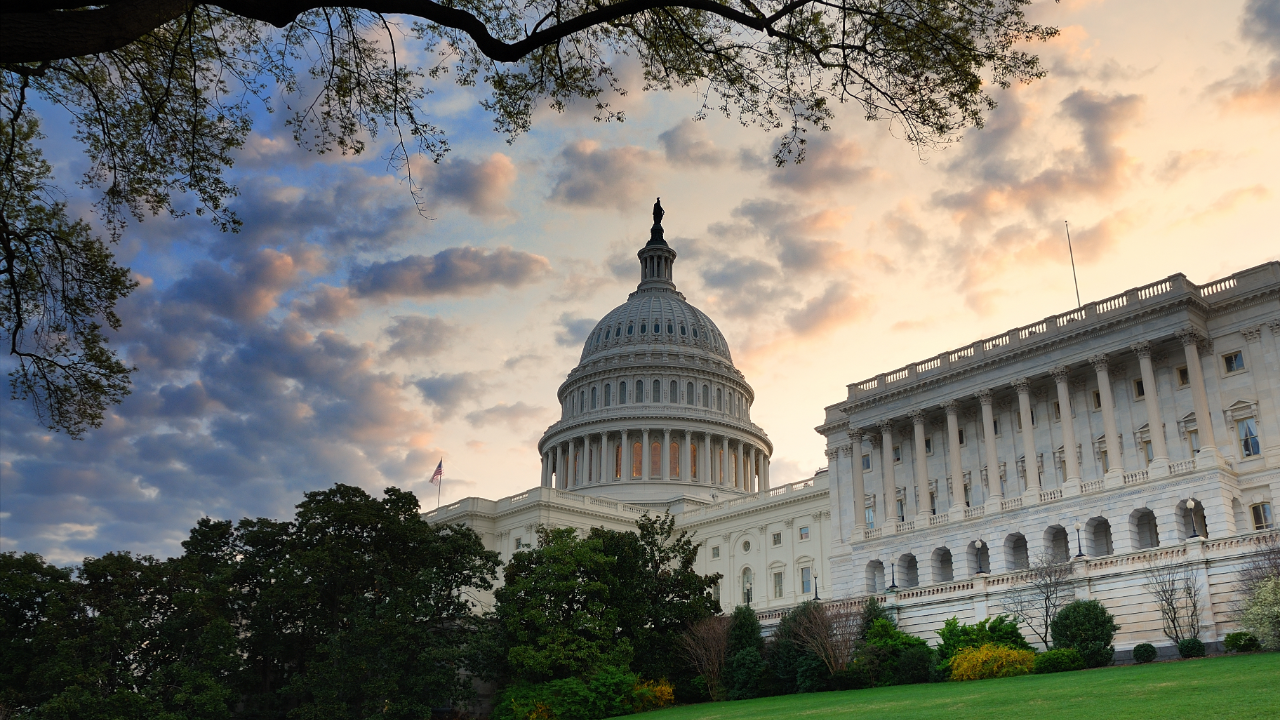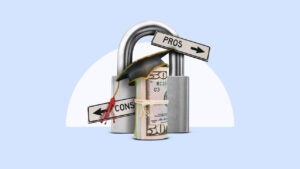Federal appeals court issues injunction against SAVE Plan, and other student loans news

A federal appeals court issued yet another blow to the Saving On A Valuable Education (SAVE) plan last Friday. Last week’s ruling in the U.S. 8th Circuit Court of Appeals could foreshadow a longer, more intense legal battle within the Supreme Court.
Plus, a group of Democrat senators launched an investigation following a Washington Post report on student loan balances showing up twice on certain borrowers’ credit reports.
SAVE plan blocked again by appeals court, signaling extended legal battle over forgiveness
On Friday, a panel of Republican-appointed judges unanimously issued an injunction against the SAVE plan. The injunction states the plan is without Congressional authorization and forbids the administration from forgiving any loans or interest under the plan.
The ruling replaces the administrative stay the court issued last month. Nothing is changing for borrowers: the current administrative forbearance will continue until a final decision is reached. But this most recent injunction is another setback for the administration and could result in a months-long legal battle if they appeal the order.
The SAVE Plan is the newest federal repayment plan that bases a borrower’s monthly payment on income level and family size. Touted as the “most affordable student loan plan ever” by President Joe Biden, it has also been the most legally contentious.
SAVE benefits borrowers by changing income guidelines, resulting in a $0 monthly payment for at least 4.5 million borrowers, and allowing forgiveness after as few as 10 years of payments. However, the plan has recently been involved in a battle of legal ping-pong.
Two groups of Republican-backed states filed lawsuits and subsequent injunctions have blocked parts of the plan. The most recent update extends the time in which the plan is blocked. The administration is expected to appeal the decision.
“The new SAVE plan, by contrast, is an order of magnitude broader than anything that has come before,” reads the court’s 10-page opinion. Although pre-existing income-driven repayment (IDR) and income-contingent repayment (ICR) plans have forgiven debt in a similar fashion, the court referred to the SAVE provisions as a “vast assertion of newfound power.”
“Here the Government asserts that it has discovered in a few provisions of the HEA [Higher Education Act] the authority to forgive hundreds of millions of dollars’ worth of student loans, 3,000 percent more than has ever been forgiven under any previous ICR program,” the opinion states.

Current student loans news
Use the student loans news hub to stay updated with the latest news that could impact your balance and your wallet.
Learn moreIn a recent statement, U.S. Secretary of Education Miguel Cardona asserted the decision rejects 30 years of loan forgiveness precedent.
“If allowed to stand, this ruling would force millions of borrowers to pay hundreds of dollars more each month,” Cardona explained. “And the decision’s reasoning could deny loan forgiveness to individuals who were expecting it after up to 25 years of faithful repayments,” he added.
He assured borrowers that those enrolled in the plan will continue to receive interest-free payment forbearance while SAVE is being defended in court. The Department of Education will provide regular updates to those impacted by the recent order in the coming days, so they don’t need to take any immediate action at this time.
However, it’s in your best interest to update your information to make sure you’re receiving timely updates. Log on to your federal servicer’s online portal, double-check your contact information and correct it immediately if anything is outdated. You can also contact a customer service representative or stay up-to-date with the latest SAVE news at studentaid.gov.
Senate Democrats investigate double student loan reporting on credit reports
On Thursday, Senate Democrats sought answers following a Washington Post report about student loan payments appearing inaccurately on borrowers’ credit reports.
According to Washington Post reporter Danielle Douglas-Gabriel’s findings, certain borrowers who were transferred from Nelnet to MOHELA, both federal loan servicers, found their balances listed twice on their credit reports. She states the Education Department confirmed 1.4 million duplicate records exist, though the problem could be even larger.
Many of the impacted borrowers are unaware of the double-reporting, even though it has the potential to severely impact their credit score. However, those who have reported the issue have allegedly been waiting for months on a resolution, the Washington Post reported.
It's bad for your credit score if the algorithms think your student loan debt is twice as much as it should be.— Ted Rossman, Bankrate senior credit card industry analyst
Sens. Elizabeth Warren, Ron Wyden, Richard Blumenthal and Jeff Merkley sent letters Thursday to federal student loan servicer Nelnet and MOHELA as well as the three major credit reporting agencies, seeking further information. The lawmakers have given the companies until August 22 to respond.
“Each of these entities must work swiftly to resolve this issue and ensure this mistake does not happen again,” the letter reads.
However, the servicers pushed back against the claims in the letter, stating that they’re not responsible and blamed the Education Department for the misreporting.
“Borrowers have spent countless hours trying to resolve these issues. And all the while, MOHELA, NelNet, and the credit agencies have pointed fingers at each other, further delaying relief,” wrote the lawmakers. “These credit reporting errors suggest that MOHELA, which has a long history of mistreating borrowers, has failed once again.”
MOHELA is currently being sued by the American Teacher Federation for alleged predatory activity, like overcharging on accounts, failing to process paperwork and misleading borrowers about their balances.
What this means for borrowers
Borrowers with federal student loans transferred from Nelnet to MOHELA within the past year need to check their credit reports for double reporting.
Check your credit report for free on freecreditreport.com. You can also access your report with any of the three major credit reporting bureaus — Experian, Equifax and TransUnion.
Ted Rossman, senior credit card industry analyst at Bankrate, stresses that borrowers should try to resolve the issue quickly.
“The big issue here is if double reporting throws your debt-to-income ratio out of whack,” he says. “It’s bad for your credit score if the algorithms think your student loan debt is twice as much as it should be.”
If you notice an incorrect balance, dispute it promptly. Gather all of the supporting documentation and then submit it to both the reporting company and your federal servicer. Most federal servicers allow you to file a complaint by email, phone or through an online portal on the website. You can find this information on the company’s website under the customer service information page or tab.
If you wish to further escalate your complaint or don’t hear back from your servicer, submit a claim through the Department of Education’s Online Feedback System or call 877-557-2575.
Why we ask for feedback Your feedback helps us improve our content and services. It takes less than a minute to complete.
Your responses are anonymous and will only be used for improving our website.
You may also like

Pros and cons of private student loans





